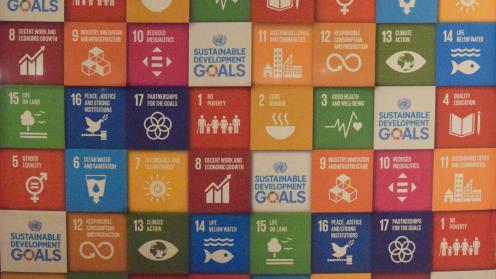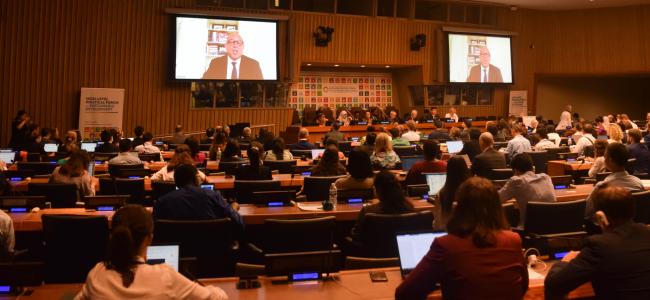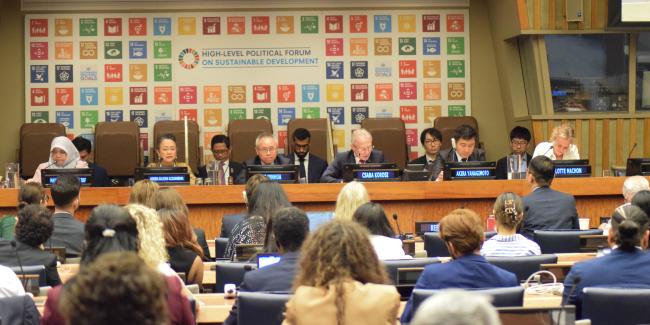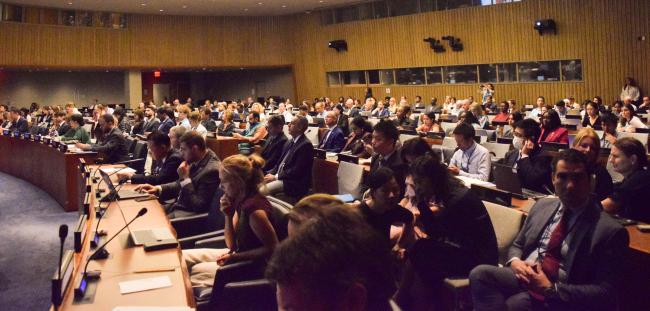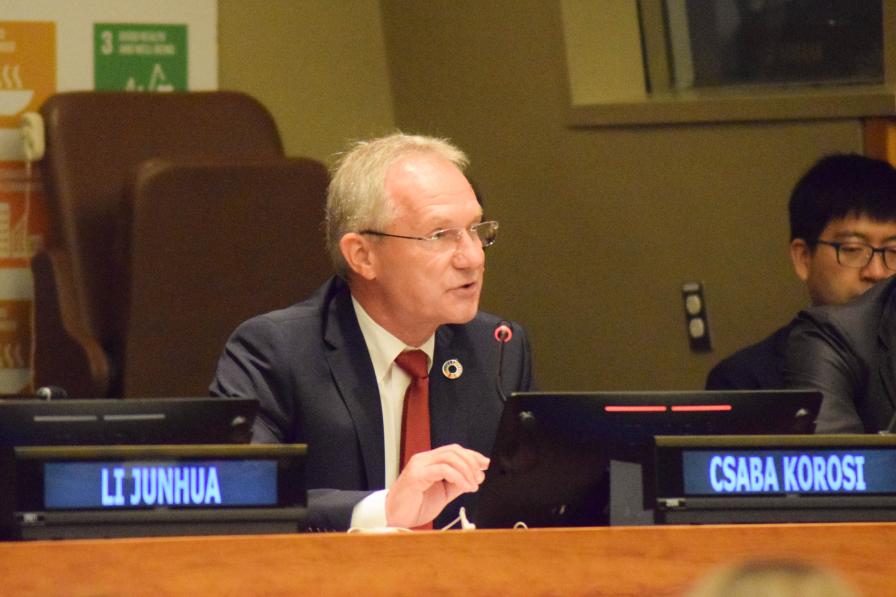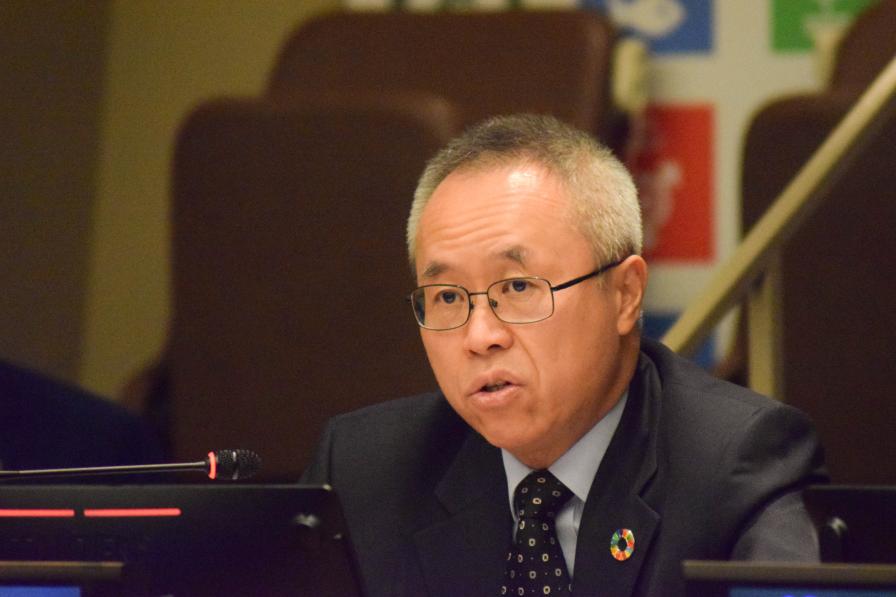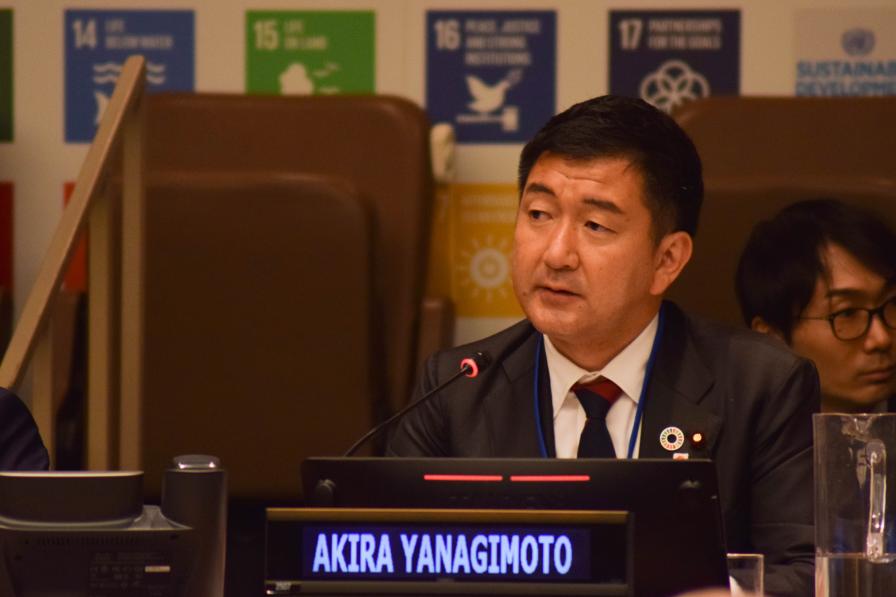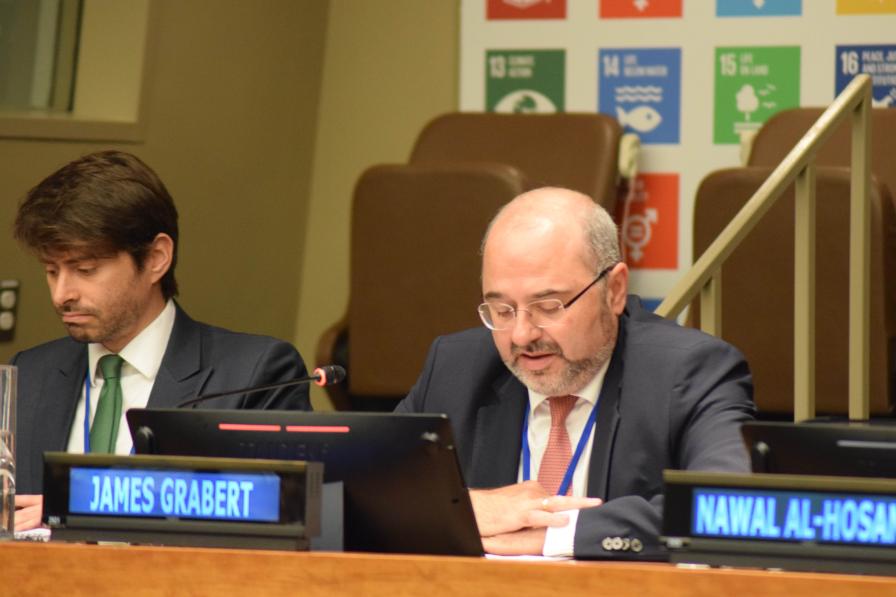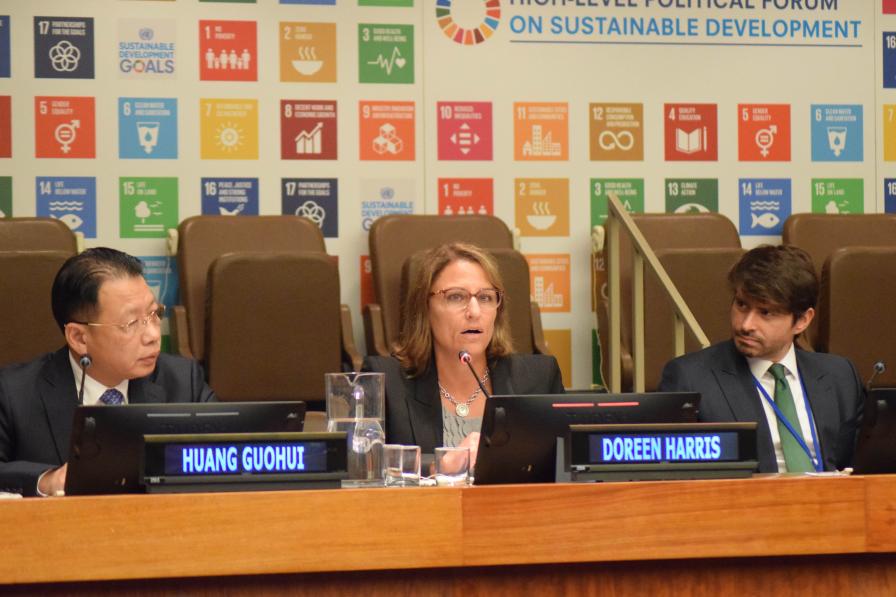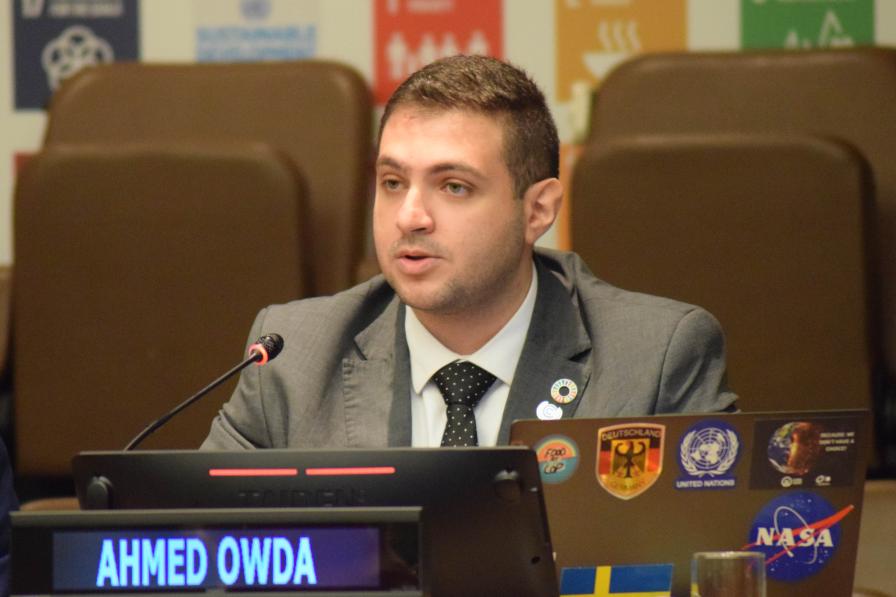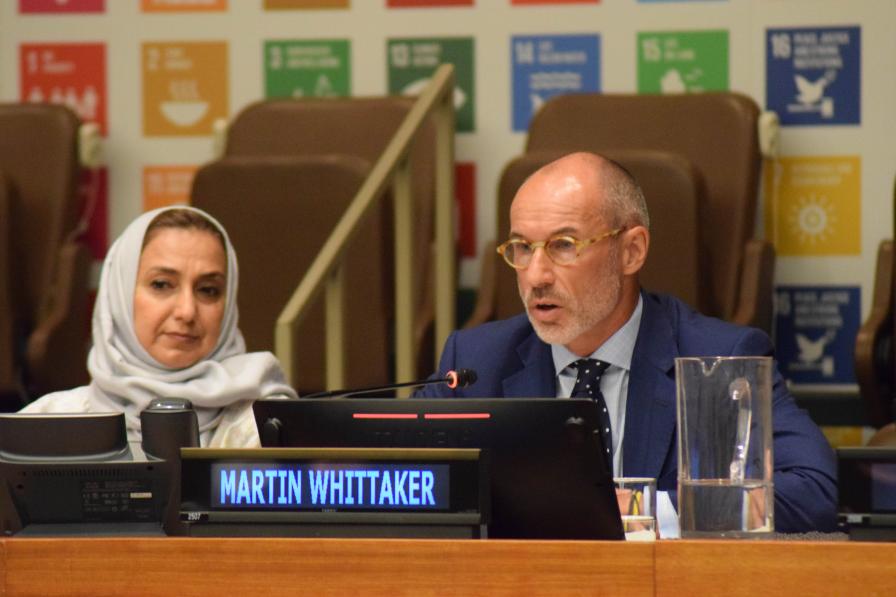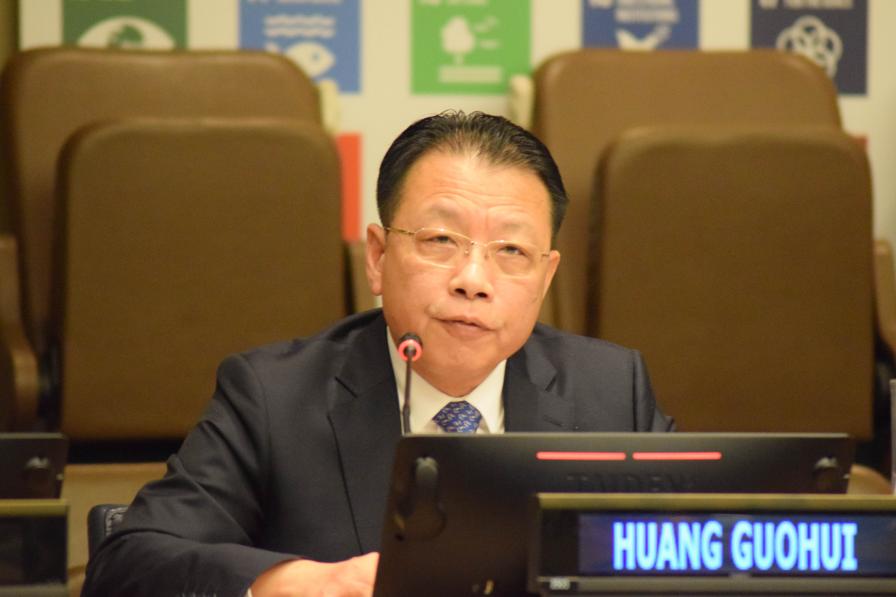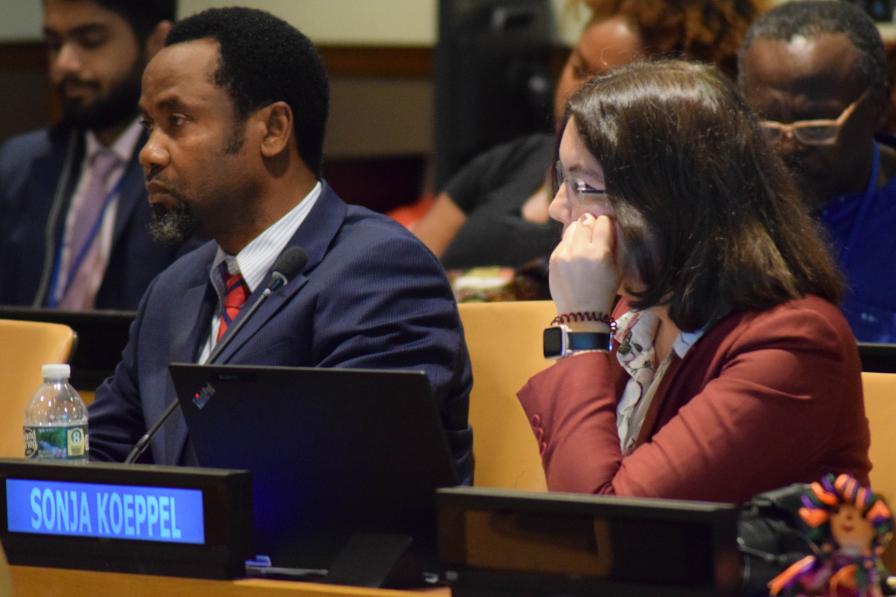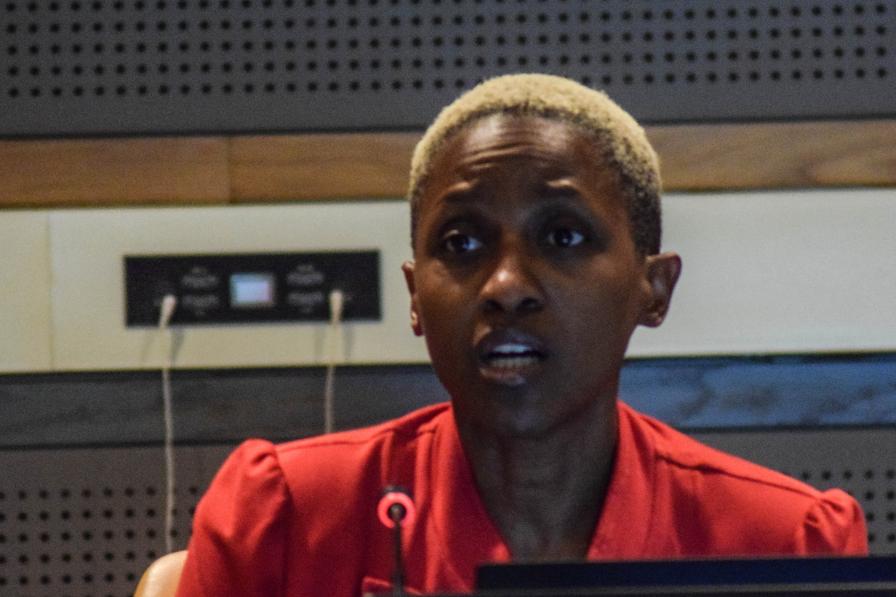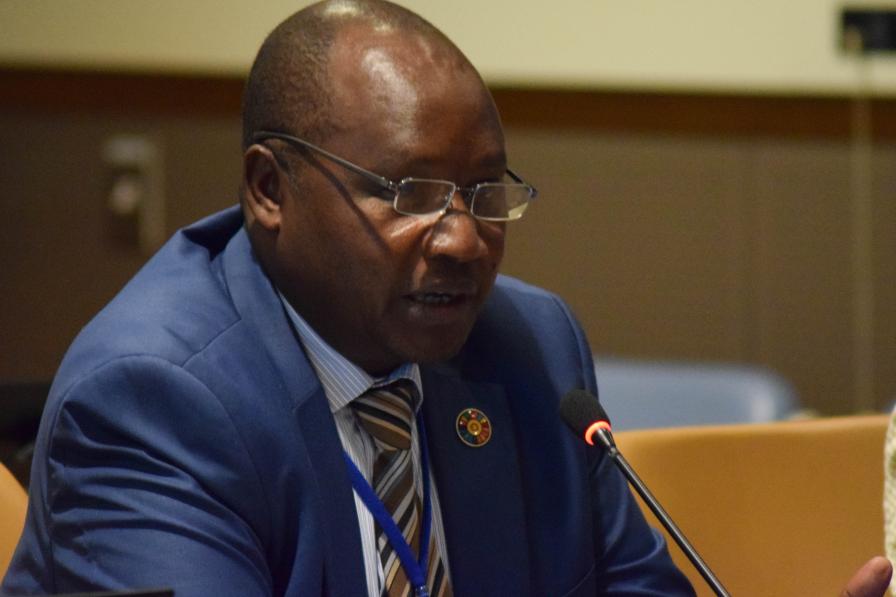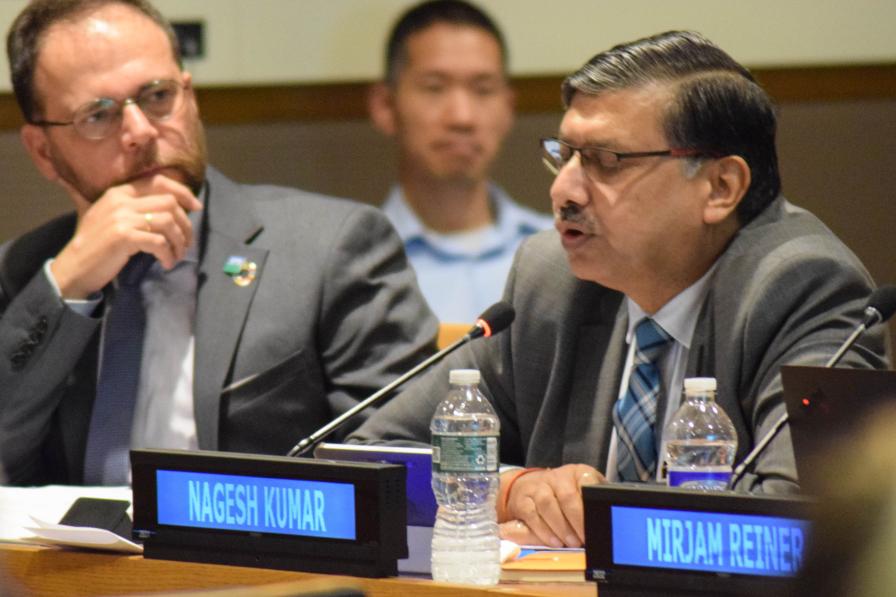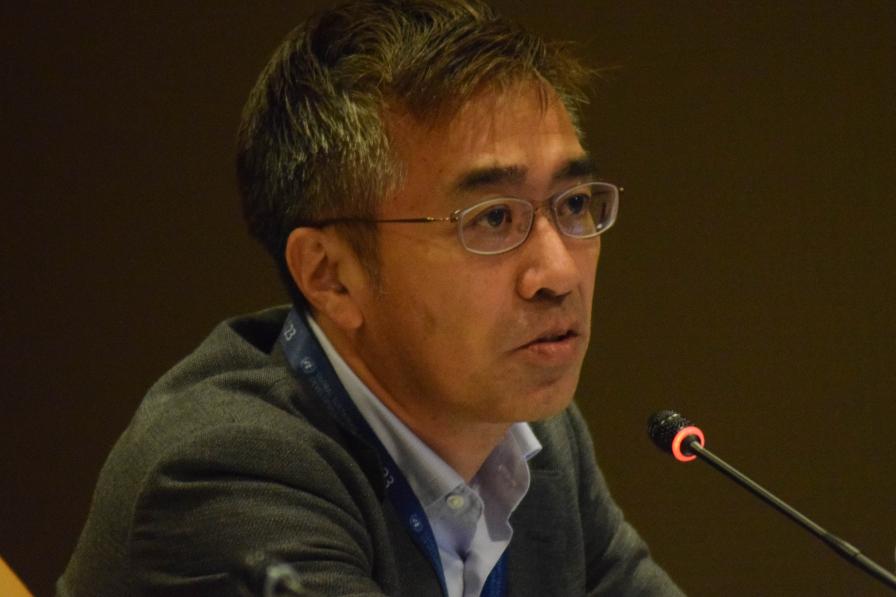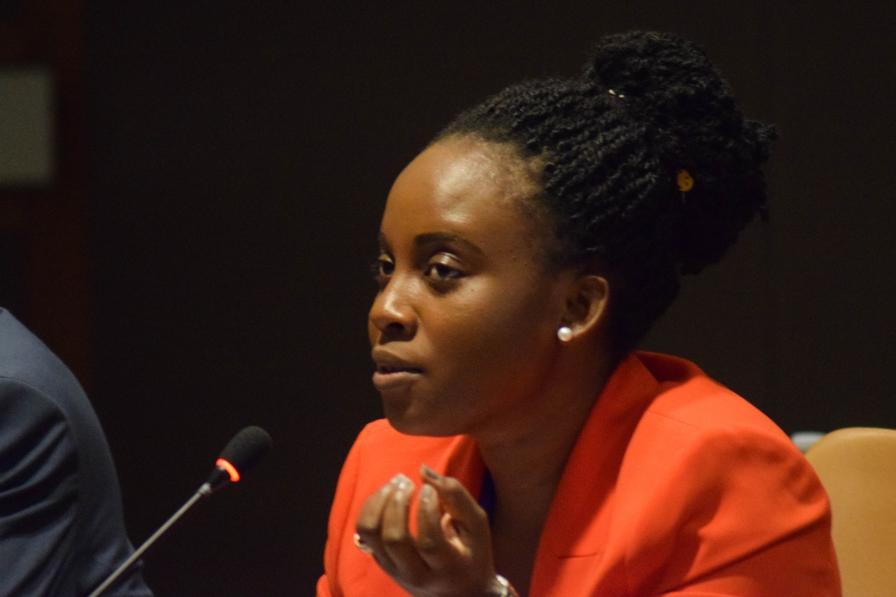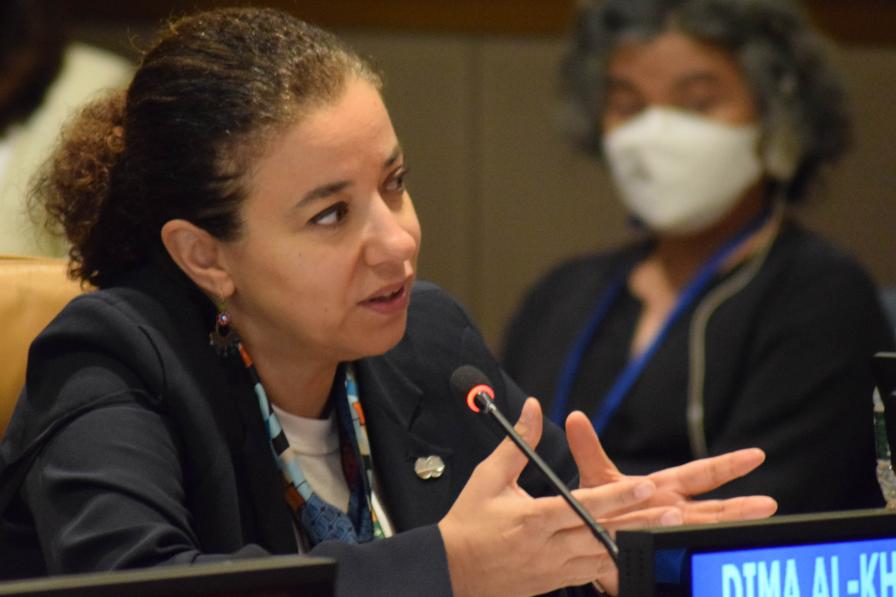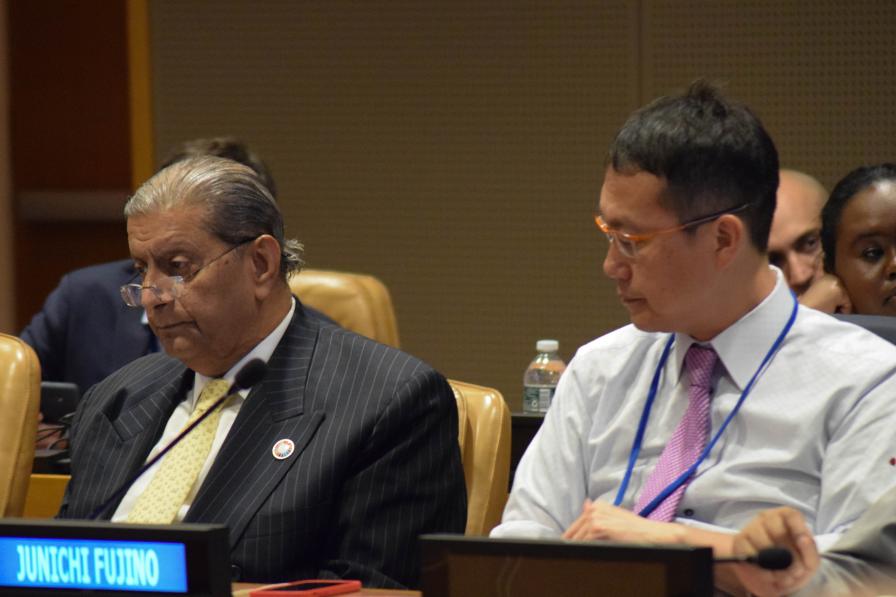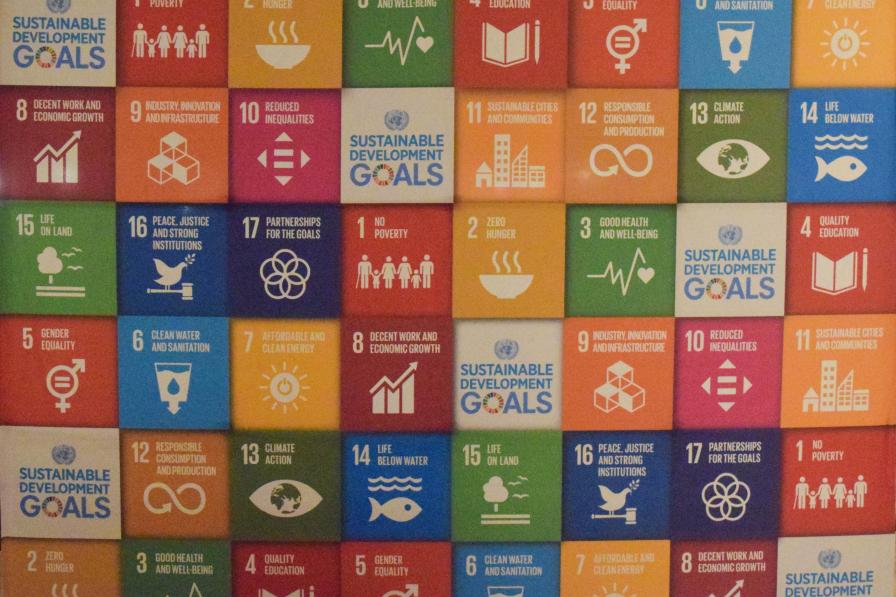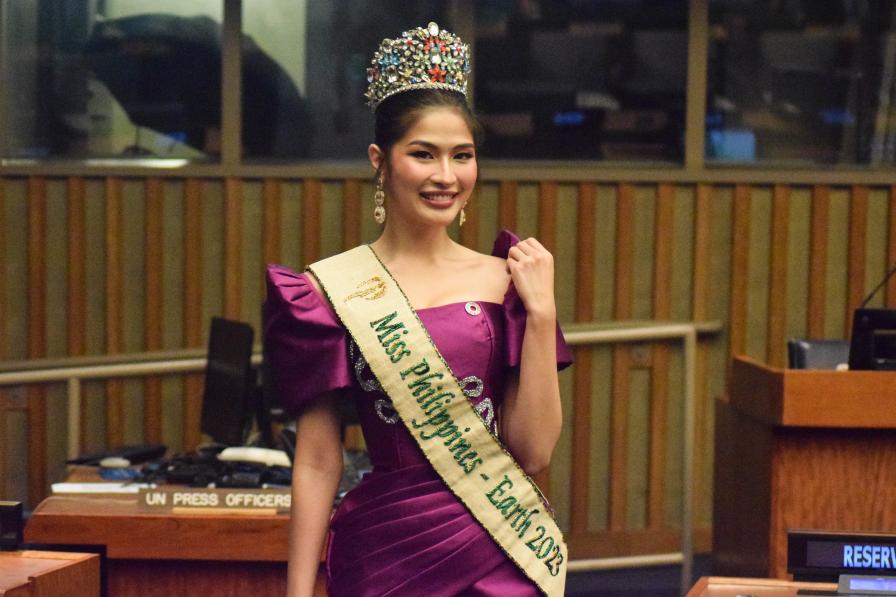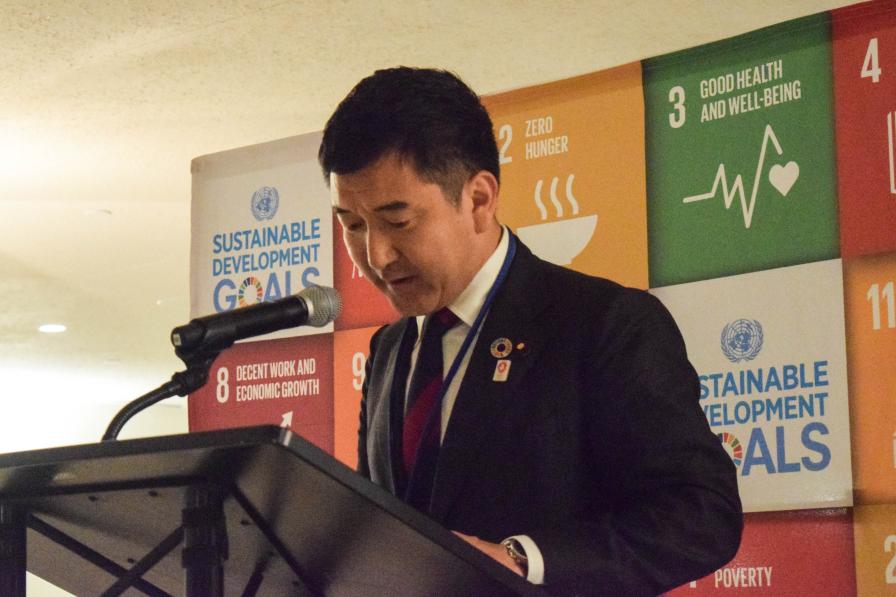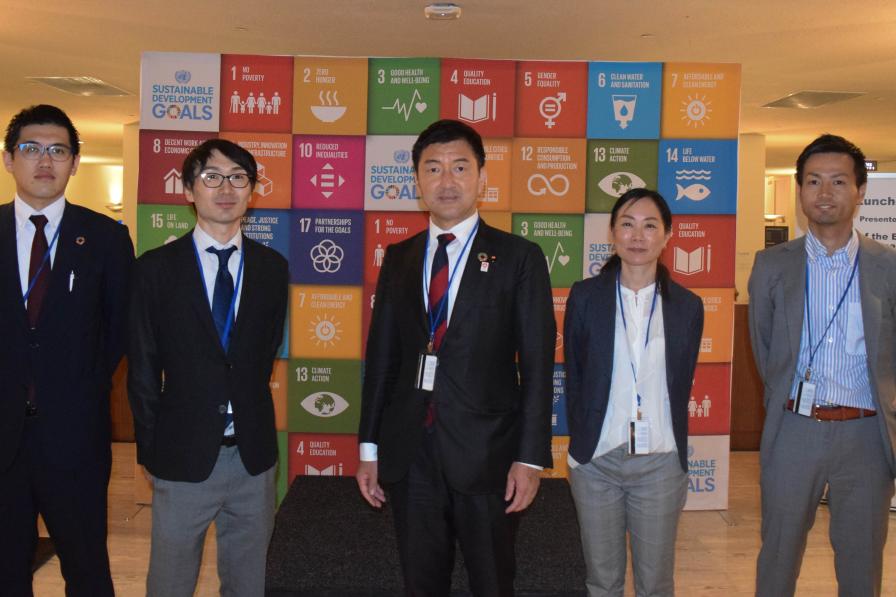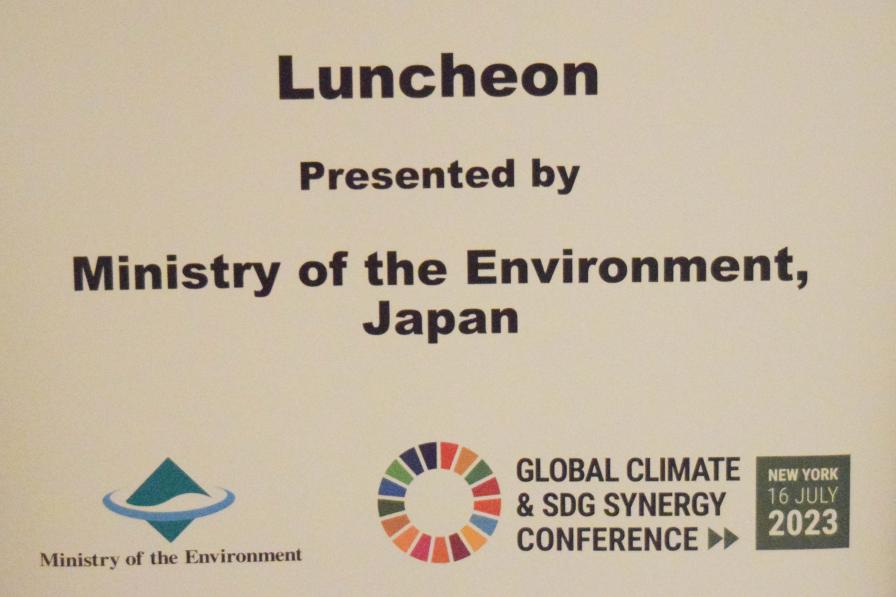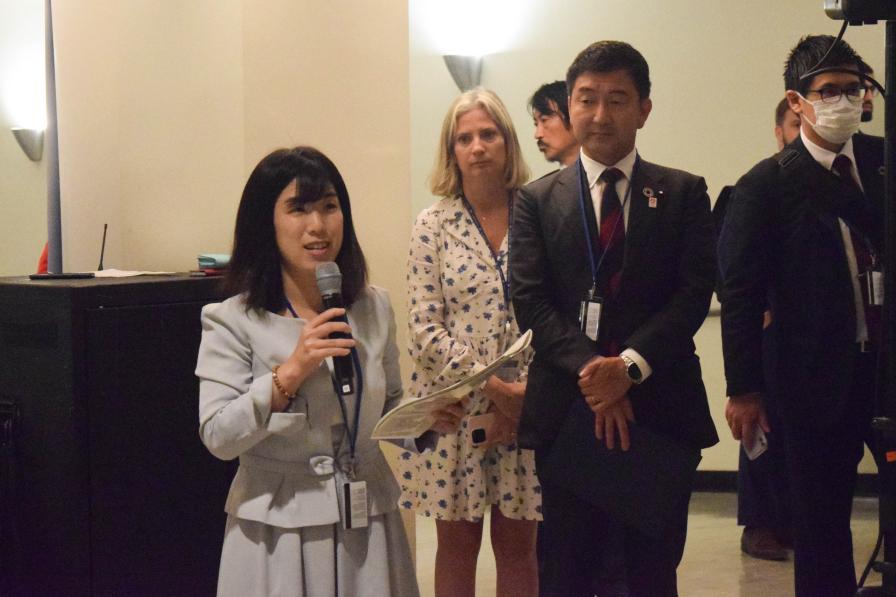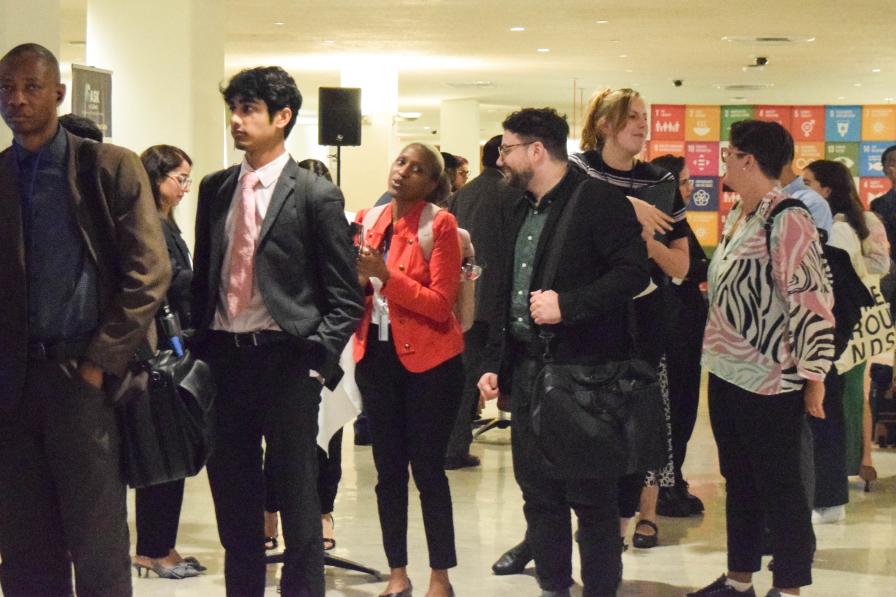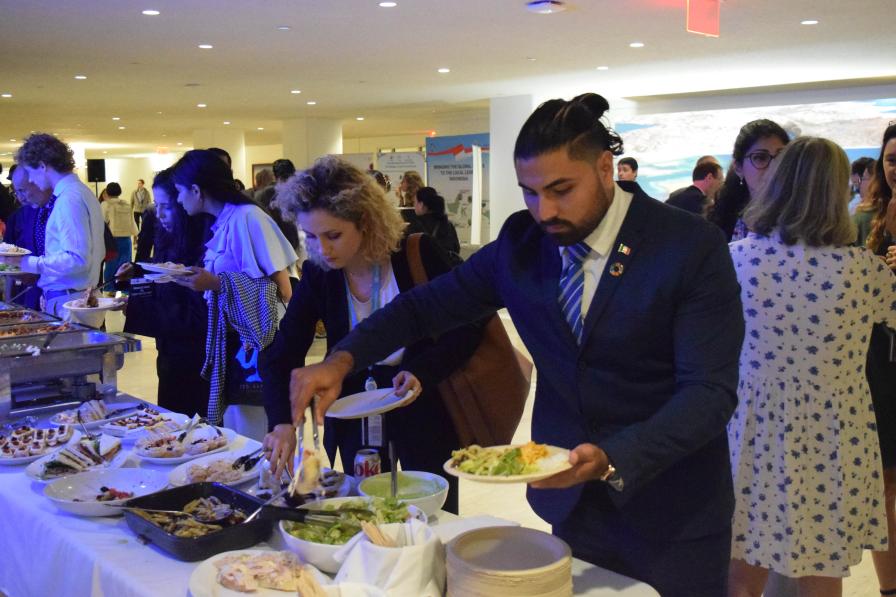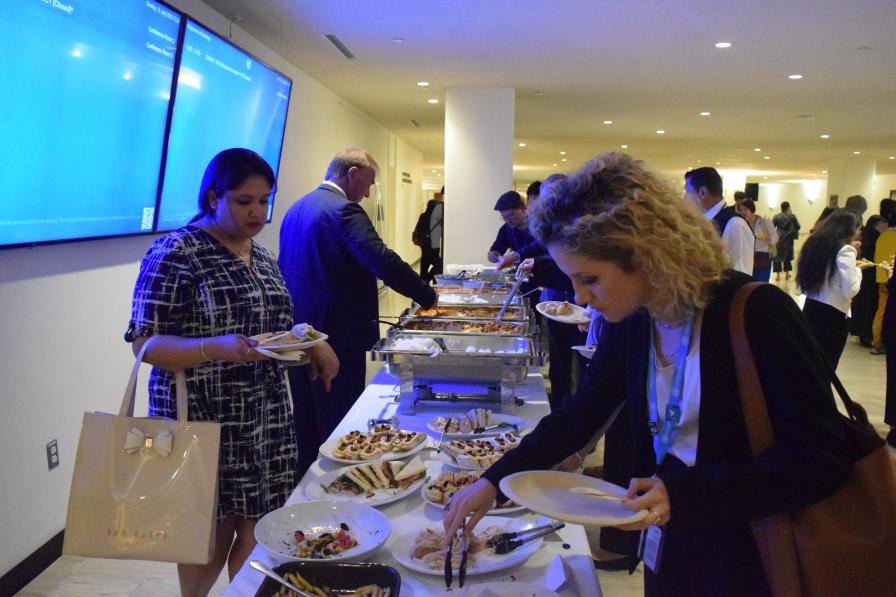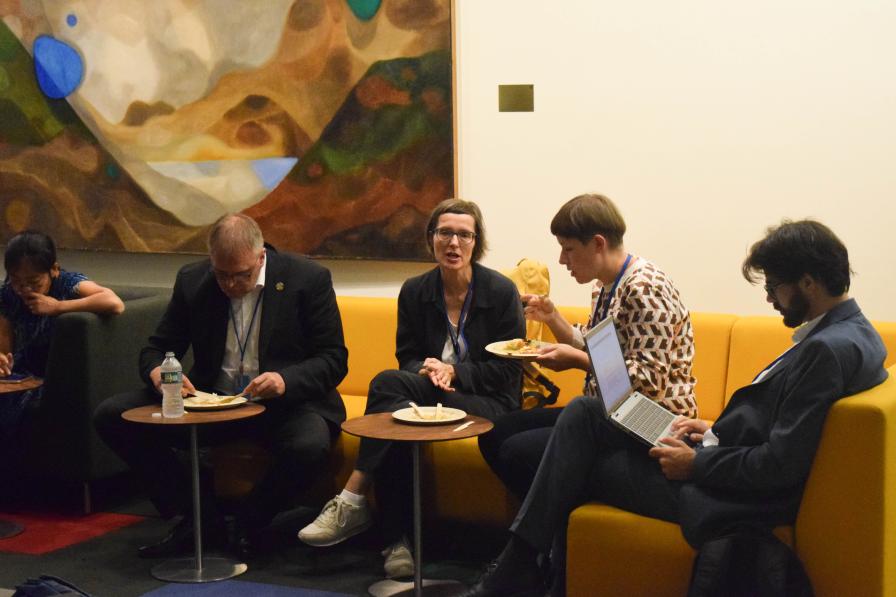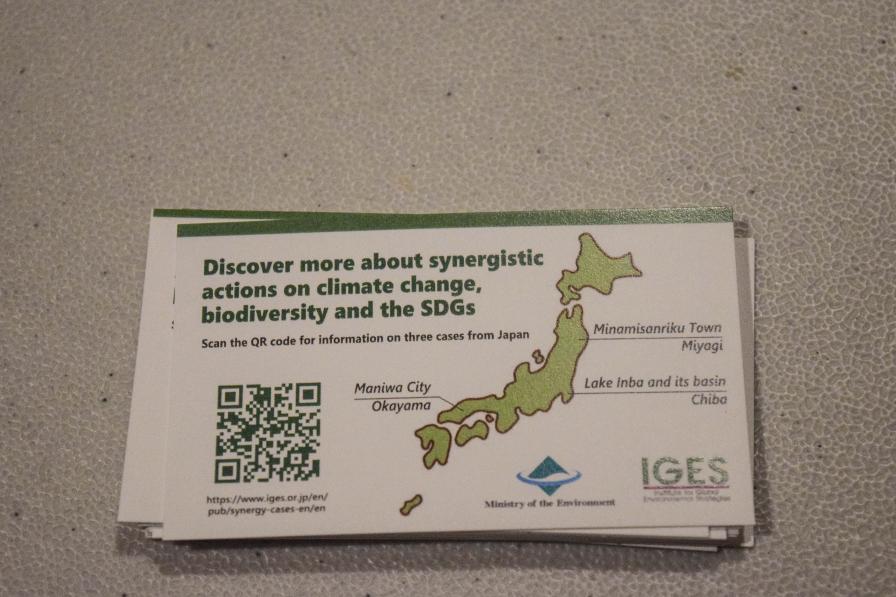About
Since 2019, a series of climate and SDG synergies conferences have sought to identify ways to maximize action on the links between these two ambitious frameworks—breaking down barriers between policymakers and the scientific community to leverage synergies.
Final report
Summary report 16 July 2023
All coverage
The Sustainable Development Goals (SDGs) and the Paris Agreement on climate change – both adopted in 2015 – each set out goals and objectives that contribute to sustainability and resilience for people and planet. Since 2019, a series of climate and SDG synergies conferences have sought to identify ways to maximize action on the interlinkages between these agreements.
The fourth such global conference convened on 16 July 2023 as a special event of the 2023 session of the High-level Political Forum on Sustainable Development (HLPF) and prior to the SDG Summit and the 28th session of the Conference of the Parties to the UN Framework Convention on Climate Change (UNFCCC COP 28), which will conduct a Global Stocktake of progress. The Fourth Global Conference sought to feed into these processes with an assessment of progress made against recommendations from the previous conferences, including the need for principles of just transition at the center of each integrated planning.
In their opening statements, the meeting’s co-hosts highlighted the increasing recognition of SDG-climate synergies and opportunities to further the dialogue. Li Junhua, Under-Secretary-General for Economic and Social Affairs, UN Department of Economic and Social Affairs (UN DESA), called attention to G7 and G20 outcomes related to synergies. Simon Stiell, Executive Secretary, UNFCCC, noted opportunities during upcoming events, including the Food Systems Stocktaking Moment, the SDG Summit, and the UN Secretary-General’s Climate Ambition Summit.
A number of high-level speakers underscored the co-benefits of synergistic action to open the day-long event. Csaba Kőrösi, President, 77th session of the UN General Assembly (UNGA), observed that disregarding obvious synergies wastes time and money. He urged breaking down barriers between policymakers and the scientific community and leveraging synergies.
Armida Salsiah Alisjahbana, Executive Secretary, Economic and Social Commission for Asia and the Pacific (ESCAP), noted regional action has included an agreement for cross-border power grid connection between countries to allow for more sharing of renewable energy resources across countries.
Maimunah Mohd Sharif, Executive Director, UN Human Settlements Programme (UN-Habitat), stressed that the climate crisis is an urban challenge and one of five transformative action points for addressing global urban issues.
Rabab Fatima, High Representative for the Least Developed Countries, Landlocked Developing Countries and Small Island Developing States (UN-OHRLLS), called attention to synergies with the Programme of Action for Least Developed Countries and noted opportunities to continue the dialogue in 2024 during the third UN Conference on LLDCs and the fourth International Conference on Small Island Developing States (SIDS4).
During a panel on policy options for the way forward, discussions emphasised that synergies between the Paris Agreement and SDGs inform the host government’s approach to COP 28 and its four priorities: fast-tracking the energy transition; fixing climate finance; focusing on lives and livelihoods; and inclusivity and stakeholder engagement. Opportunities for Supreme Audit Institutions (SAIs) to enhance transparency and accountability in government and private sector action were highlighted, including through the use of the Climate Scanner – a tool that evaluates government actions related to climate change. The importance of a whole-of-government and whole-of-society approach, as well as action at the national and multilateral levels, was emphasized by many.
In his report on progress in implementing the recommendations of the Third Global Synergies Conference, Kazuhiko Takeuchi, President, Institute for Global Environmental Strategies (IGES), highlighted the need to enhance integrative planning and forging links between Nationally Determined Contributions (NDCs), National Biodiversity Strategies and Action Plans (NBSAPs), and Voluntary National Reviews (VNRs) – the national reporting processes under the Paris Agreement, Convention on Biological Diversity, and HLPF, respectively.
Representatives from the Expert Group on Climate and SDG Synergies, created following the third conference, summarized the group’s report, which evaluated NDC-SDG overlaps and found only 23 of 173 NDCs reference SDGs. The report proposes that a framework for action promote action that is transformative, context-sensitive, seeks to leave no one behind, and is designed through inclusive processes.
During three parallel discussions, one group focused on delivering a just transition, emphasizing the importance of inclusive decision making and ensuring all stakeholders are at the table. The role of a chief science advisor in helping to bridge silos in governments was highlighted, as was the need to remember solutions are context-dependent. The need to consider additional metrics, such as alternatives to GDP, and include other treaties, such as the biodiversity and plastics treaties, was also highlighted.
Another group considering climate action as an avenue for social and economic change discussed the need for inclusive processes using local bottom-up approaches, sectoral approaches, and early warning systems for disaster avoidance and preparedness.
A third parallel group considering finance and partnerships emphasized the need to upscale financing mechanisms, leverage existing mechanisms, redefine how banks measure and manage risk, and harness blended and private finance. Financial literacy was highlighted as crucial, especially at the country level and in the Global South.
During the closing session, Bahareh Seyedi, Senior Sustainable Development Officer, UN DESA, highlighted that in addition to the full conference room at UN Headquarters and a speakers’ list with approximately 20 ministers and heads of UN agencies and organizations, close to 4,000 people watched the event online.
James Grabert, Director, Mitigation Division, UNFCCC, called for using this opportunity to break down silos, enhance radical collaboration, and think of synergetic actions for a just transition.
Minoru Takada, Team Leader, Energy, UN DESA, thanked all participants, the Ministry of Environment of Japan and IGES, colleagues from the UN organizations, and the UNFCCC Secretariat and UN DESA, the conference co-conveners. He and Grabert jointly gaveled the event to a close at 4:45 pm.
To receive free coverage of global environmental events delivered to your inbox, subscribe to the ENB Update newsletter.
All ENB photos are free to use with attribution. For the Fourth Global Conference on Strengthening Synergies between the Paris Agreement and the 2030 Agenda, please use: Photo by IISD/ENB | Stephan Boissonneault
Synergistic Action on SDGs and Climate
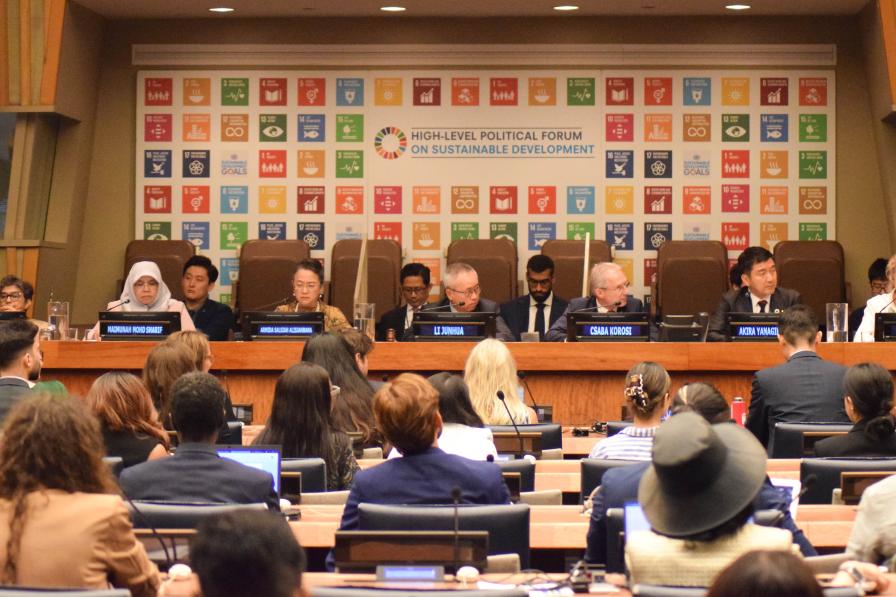
Maimunah Mohd Sharif, Executive Director, UN-Habitat, Armida Salsiah Alisjahbana, Executive Secretary, ESCAP, Li Junhua, Under-Secretary-General, UN DESA, Csaba Kórösi, President, UNGA President, and Akira Yanagimoto, Parliamentary Vice-Minister of the Environment, Japan
Armida Salsiah Alisjahbana, Executive Secretary, Economic and Social Commission for Asia and the Pacific (ESCAP), and Li Junhua, Under-Secretary-General, UN Department of Economic and Social Affairs (UN DESA)
Rabab Fatima, High Representative for the Least Developed Countries, Landlocked Developing Countries and Small Island Developing States (UN-OHRLLS)
Majid Al Suwaidi, Director-General, UNFCCC COP 28 and Special Representative of the United Arab Emirates (UAE)
Antonio Augusto Junho Anastasia, Minister, Federal Court of Accounts of Brazil / “Tribunal de Contas da Uniao” (TCU)
Scene Setting Presentations
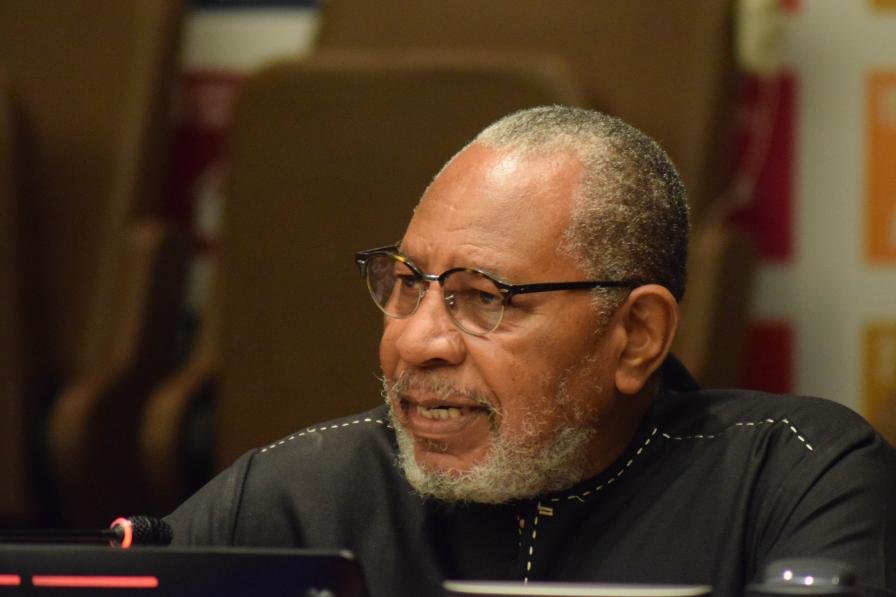
Youba Sokona, Member of Expert Group on Climate and SDG Synergies, and Vice-Chair, Intergovernmental Panel on Climate Change (IPCC)
Delivering a Just Transition by Tackling the Climate and SDG Agendas Together
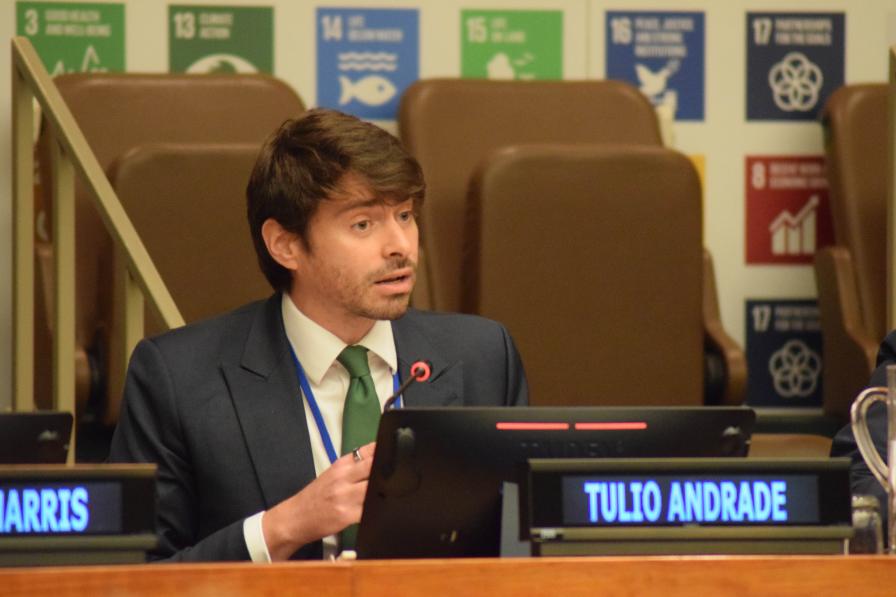
Tulio Andrade, Head for Climate Negotiations, Climate Department, Ministry of Foreign Affairs, Brazil
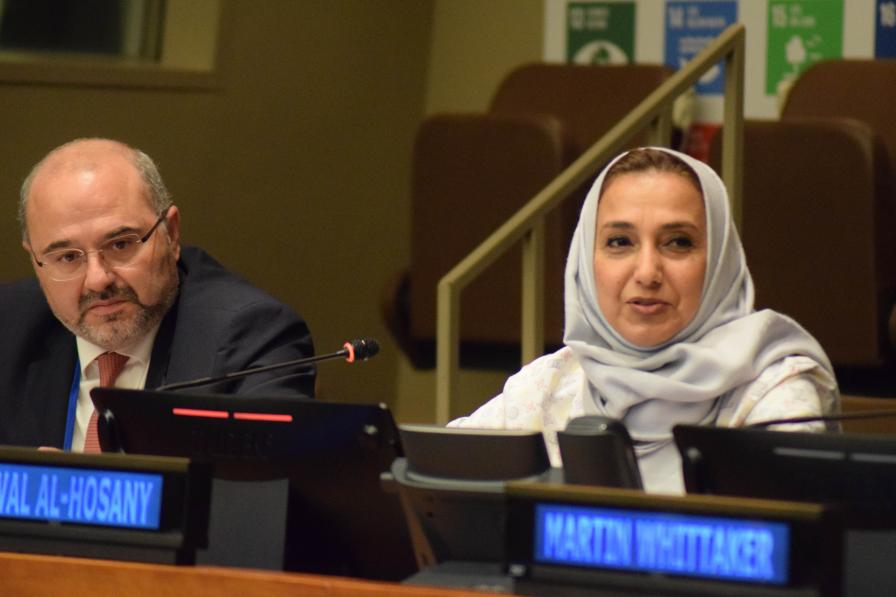
Nawal Al-Hosany, Permanent Representative of United Arab Emirates (UAE) to International Renewable Energy Agency (IRENA)
Climate Action as an Avenue for Social and Economic Change
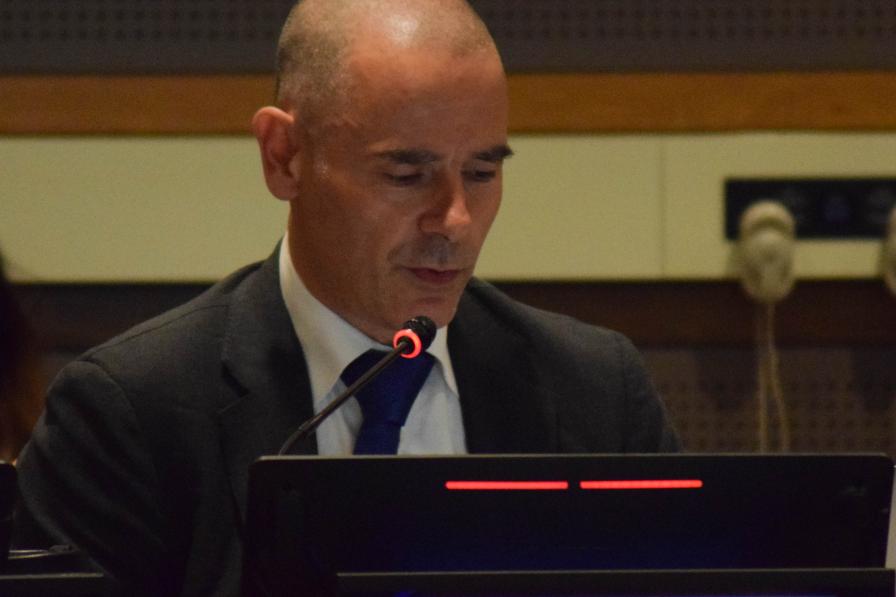
Kaveh Guilanpour, Member of Expert Group on Climate and SDG Synergies, and Vice-President for International Strategies, Center for Climate and Energy Solutions (C2ES)
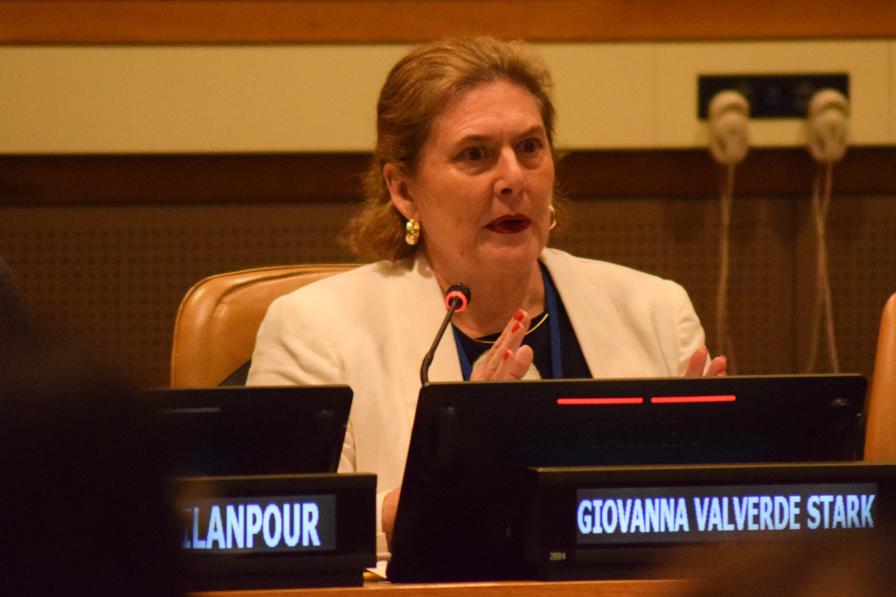
Giovanna Valverde Stark, Ambassador and Permanent Representative of Costa Rica to UNEP and UN-Habitat, Nairobi, and Co-Chair of the Board of the 10-YFP
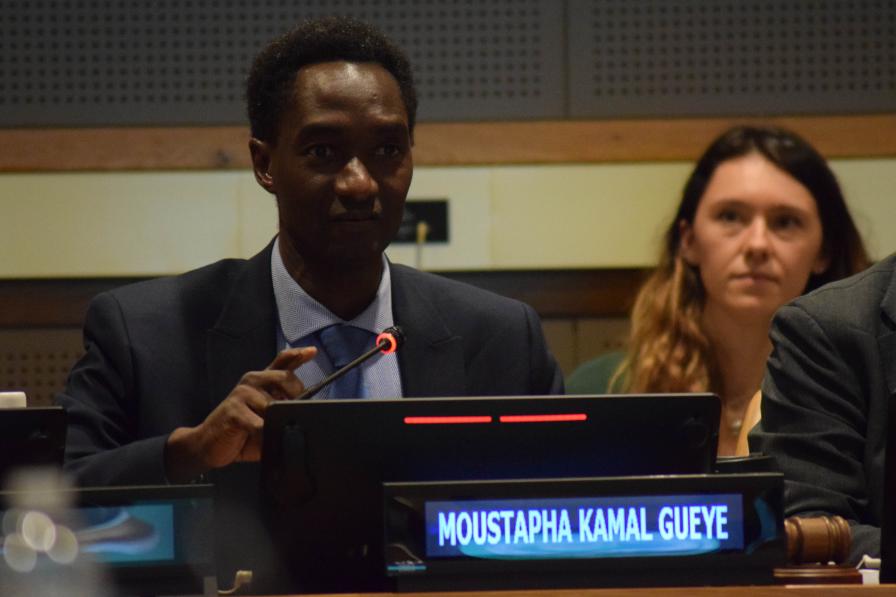
Moustapha Kamal Gueye, Director, Priority Action Programme, Just transition towards environmentally sustainable economies and societies, International Labour Organization (ILO)
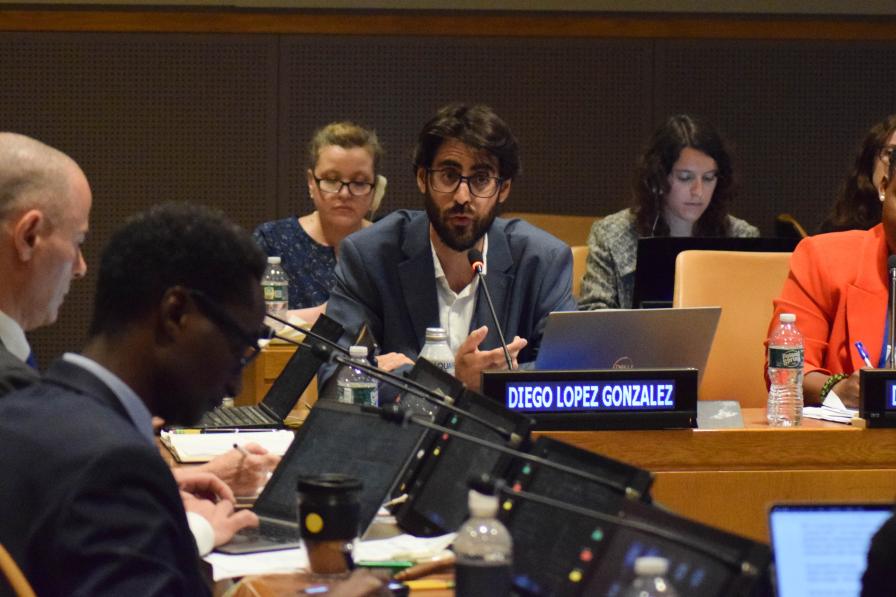
Diego Lopez Gonzalez, International Trade Union Confederation (ITUC) and Workers and Trade Union Major Group
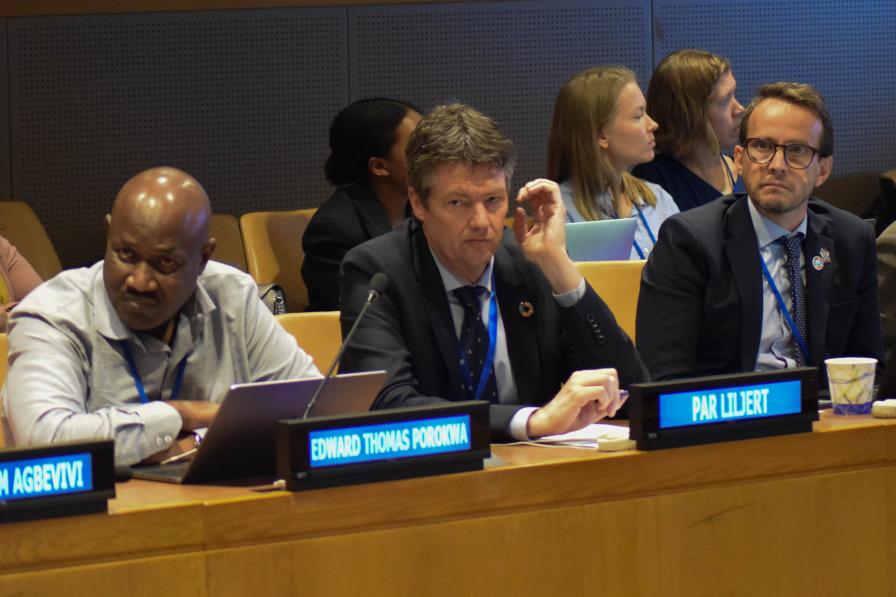
Edward Thomas Porokwa, Executive Director, Pastoralists Indigenous NGO (PINGO) Forum - Tanzania, Representative of Indigenous Peoples Major Group; Pär Liljert, Director, International Organization for Migration (IOM) New York Office; and Nicolas Franke, Coordinator and Programme Officer, World Meteorological Organization (WMO)
